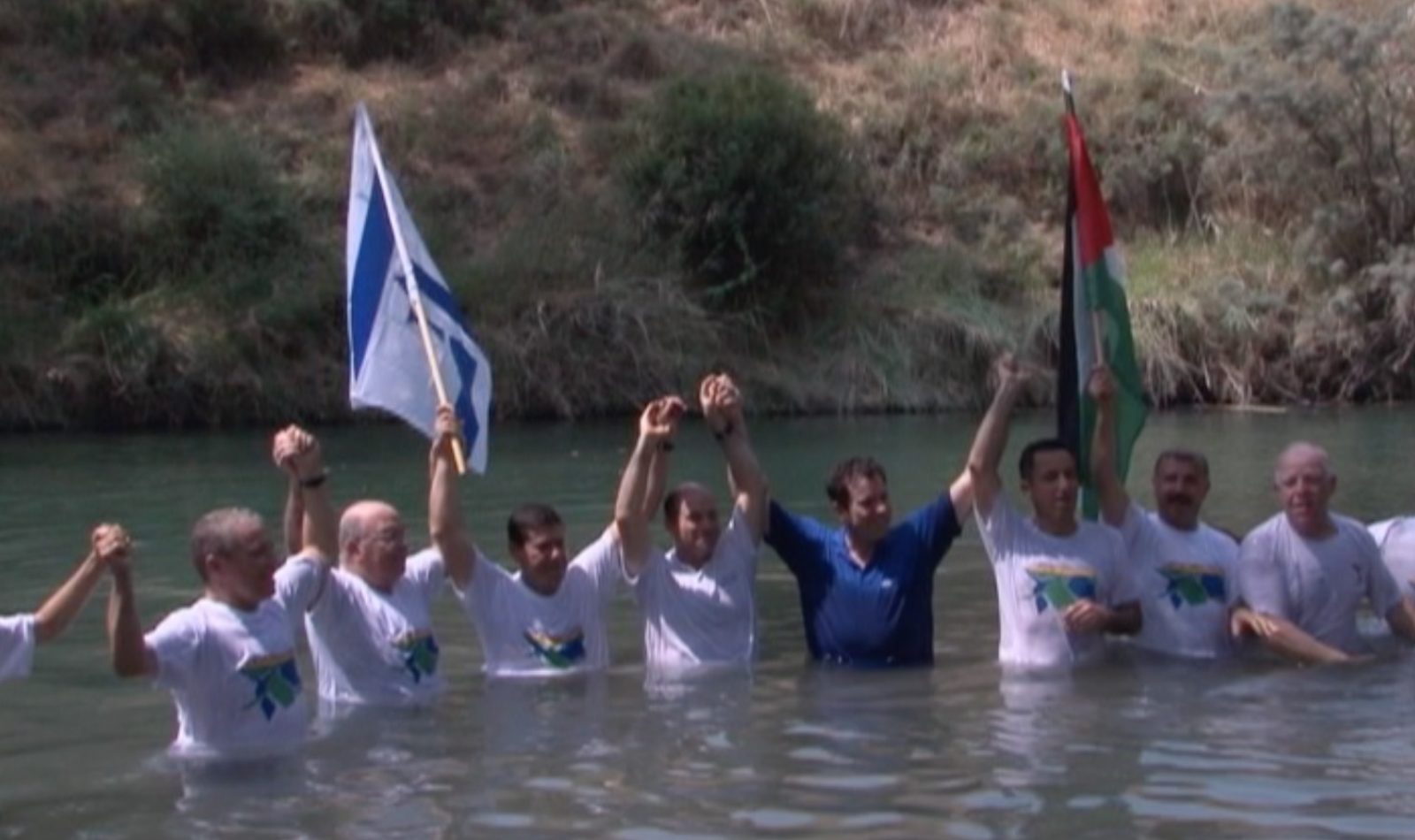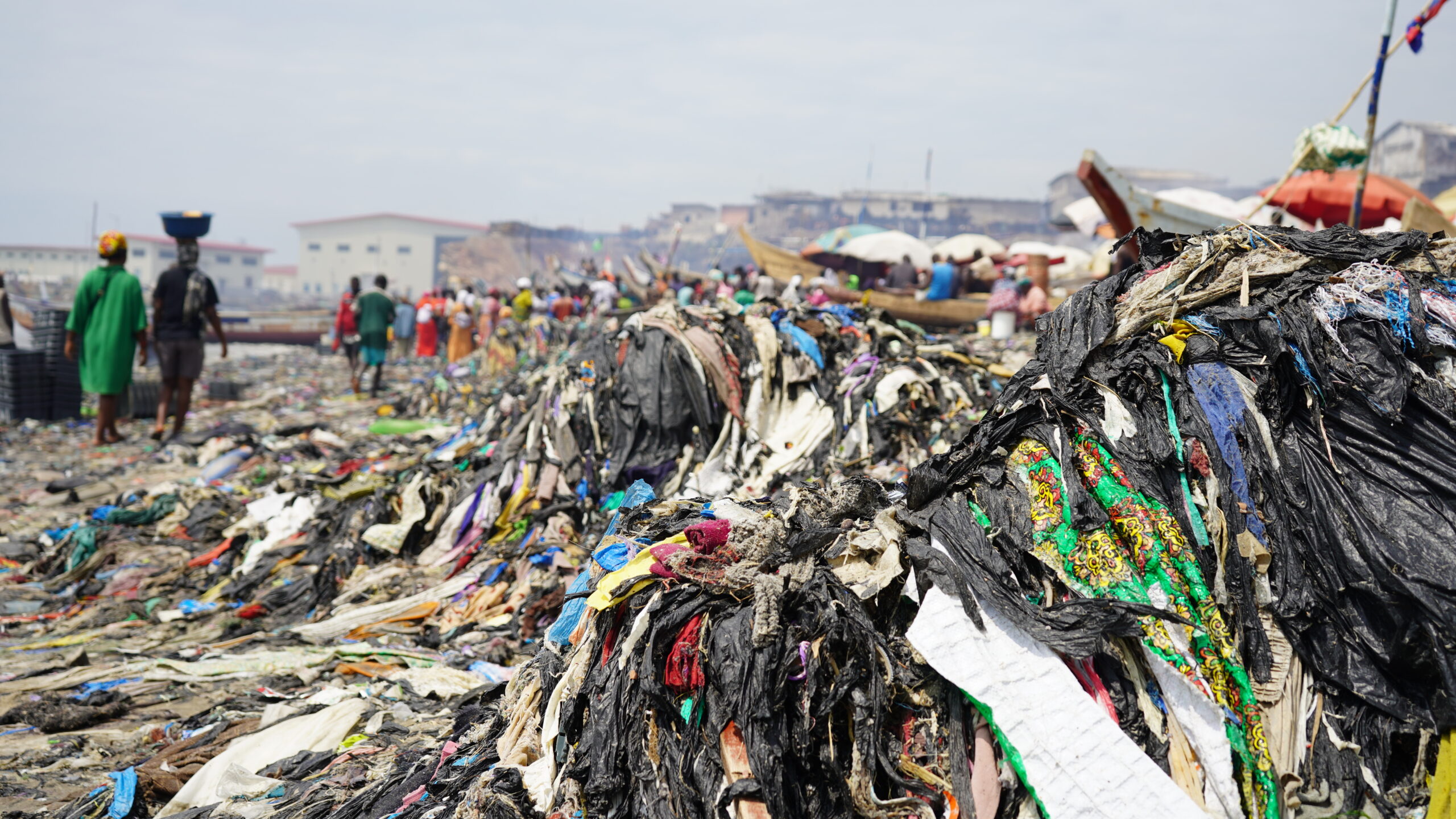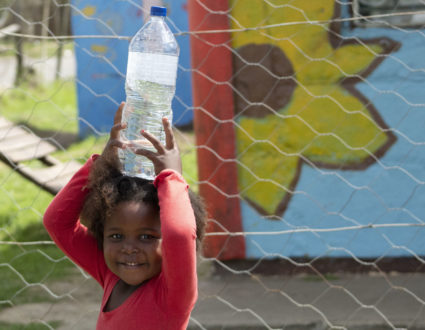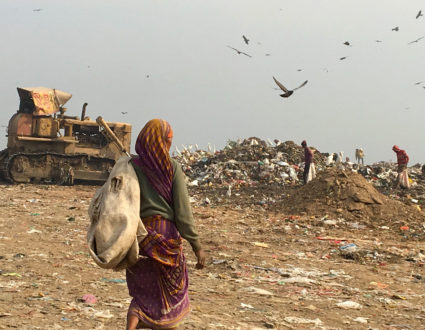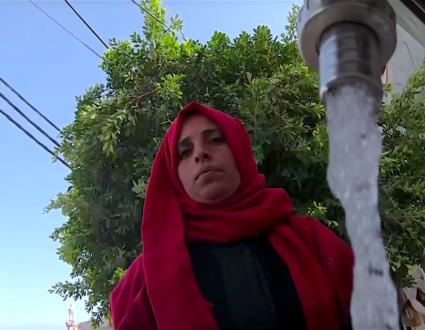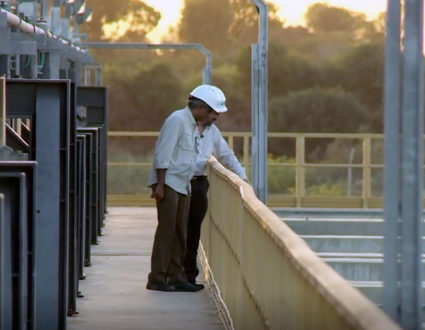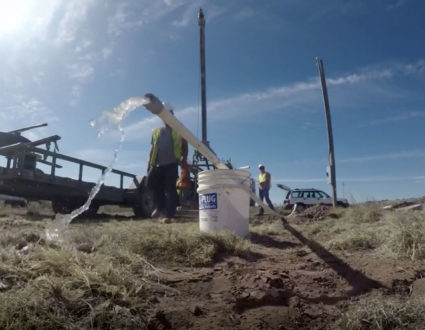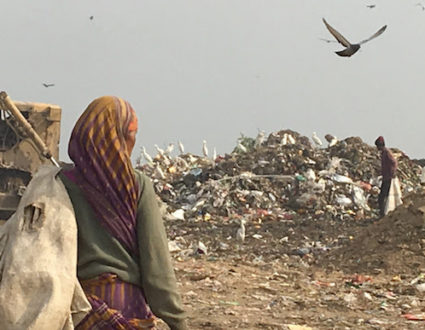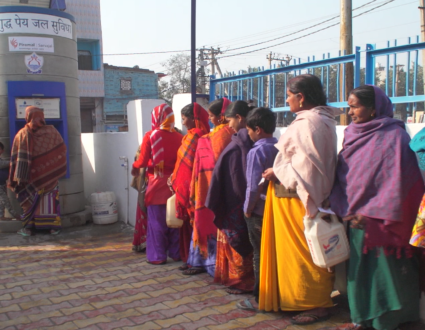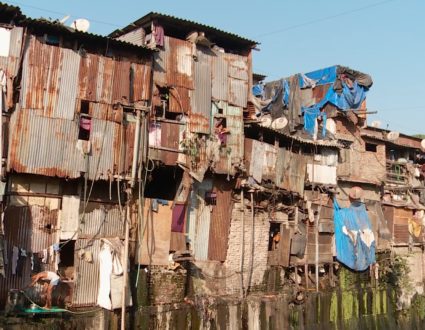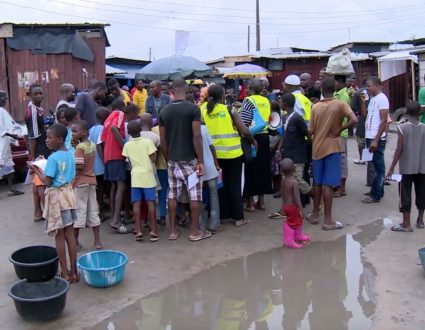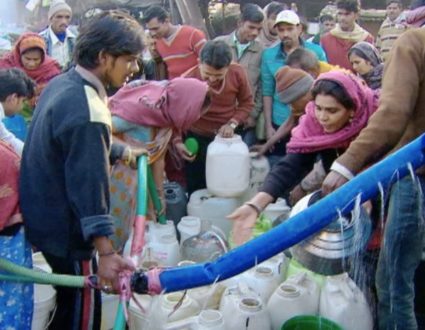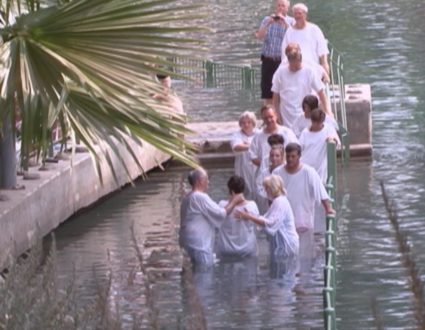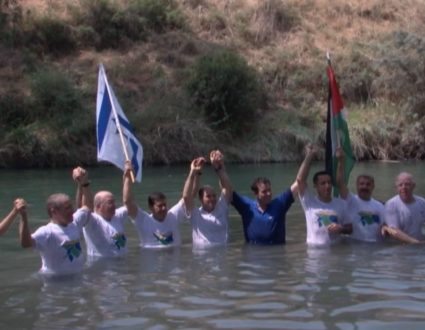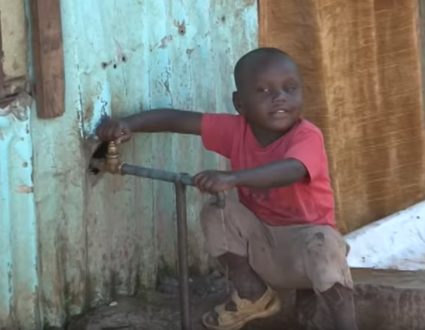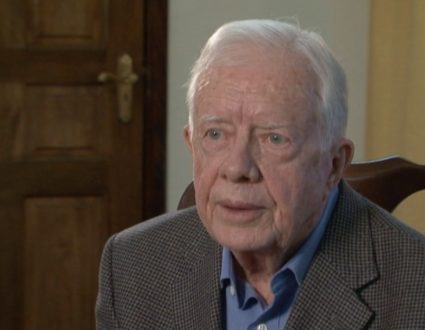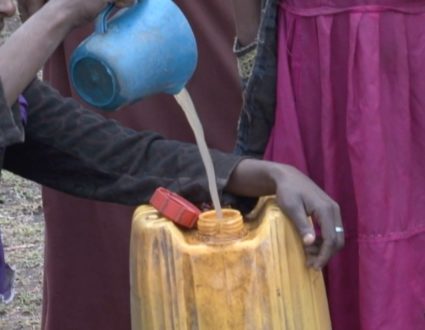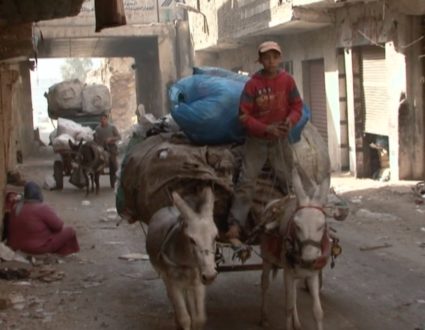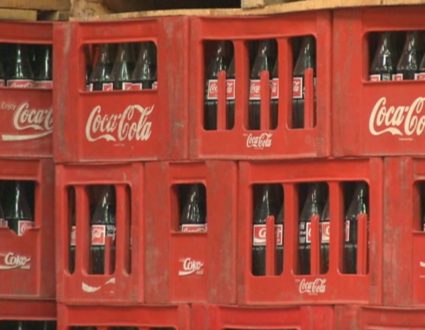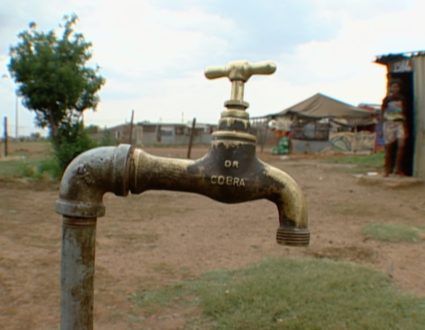FRED DE SAM LAZARO: The terrain is rocky and parched, more so in recent years due to drought. But many Israelis say they have witnessed a modern-day miracle in the Holy Land.
WOMAN (through translator): In another three years, Israel’s water crisis will be over.
FRED DE SAM LAZARO: This commercial from Israel’s public water utility boasts of a new abundance.
WOMAN (through translator): It will happen because the desalination plants will reach full working capacity.
FRED DE SAM LAZARO: Twenty-five percent of Israel’s drinking water now comes directly from the Mediterranean through expensive desalination plants built along the country’s coastline. Israel is a mostly urban nation, yet it has developed a thriving farm sector by efficiently using limited water resources in many different ways.
GILAD FREUND, Israeli farmer: We have a pipe here with a dripper.
FRED DE SAM LAZARO: Gilad Freund, a New York native, moved here 30 years ago. Among other things, he grows organic asparagus.
GILAD FREUND: Which we stick right by the young asparagus plants. And the water, when it’s opened — it’s opened by a computerized system — goes just to the asparagus plant.
FRED DE SAM LAZARO: And this is in a recycled tire.
GILAD FREUND: This is a recycled tire.
FRED DE SAM LAZARO: It’s not just the tires. Across Israel, 70 percent of the water used in homes is treated and reused in agriculture, in this case, the groves of fruit and olive trees.
GILAD FREUND: All the sewage from all the houses comes here, the washing machine, the shower, the toilet, the sink. It all flows here. And here the water is recycled.
FRED DE SAM LAZARO: Israeli farmers have fulfilled a Zionist dream of making the desert bloom.
But Gidon Bromberg and Nader Al Khateeb say it’s come at a cost. The two men, one Israeli, one Palestinian, are with a group called Friends of the Earth Middle East. They say Israeli water use, however efficient, still stresses the fragile arid environment.
More importantly, Bromberg says the water is not entirely Israel’s to take, since a lot of it comes from shared aquifers or those under Palestinian land.
GIDON BROMBERG, Friends of the Earth Middle East: Apart from two springs, the whole eastern basin of this valley is Palestinian water. And we shouldn’t be here. We shouldn’t be pumping water. When we pump water from the eastern basin, we do it directly at Palestinian expense.
FRED DE SAM LAZARO: Water or access to it is a key measure of the growing gap between the Israeli and Palestinian standards of living.
The water disparity is especially sensitive in the West Bank, land captured by Israel in the 1967 war, a lot of it now under Palestinian self-rule. In the proposed two-state solution, the West Bank, as well as the Gaza Strip, would form the future Palestinian state.
But, today, over 300,000 Israeli settlers live in the West Bank, some with large, bountiful farms. Israeli farmers receive water year-round at subsidized rates. Their Palestinian neighbors must rely on rain-fed springs which flow only in the winter, says Nader Al Khateeb.
NADER AL KHATEEB, Friends of the Earth Middle East: And if you look around us, we will see that the Palestinian land is totally bare now. There is no farming here because there is no water.
And next to us here, we can see a big farm owned by one Israeli settler who is taking the water from a well, while the Palestinians have no access or right to dig any new wells to tap the groundwater.
FRED DE SAM LAZARO: Palestinians complain that Israel controls water sources that should be shared, even though there’s a joint committee set up under the 1993 Oslo accords that must approve water permits.
Palestinian water minister Shaddad Al Attili says Israel’s water policies imperil any permanent peace plan.
SHADDAD AL ATTILI, water minister, Palestinian Authority: People talking about two-state solution and enable a viable Palestinian state, imagine this state if there’s no water. We’re saying there will be no viable state if there’s no water.
FRED DE SAM LAZARO: International agencies like the World Bank estimate that Palestinian per capita water consumption is about a quarter of the Israeli figure and well below the minimum goal set by the World Health Organization.
But the Bank claims not just Israeli policies, but also Palestinian mismanagement of resources and facilities. For their part, Israeli officials say the consumption comparison is unfair, since Israel’s far more industrialized and developed economy uses more water.
And Infrastructure Minister Uzi Landau says the Palestinians get much more water than they used to.
UZI LANDAU, Israeli infrastructure minister: More than — close to three times than what they used to get 30 or 40 years ago in 1967. There is much leakage in their — in their pipes. And I don’t think it is making much sense that we should provide them with more freshwater, so that it will get lost in their leaking system.
FRED DE SAM LAZARO: And he says the Palestinians have few, if any, working waste treatment facilities.
UZI LANDAU: As we provide them with freshwater, we in turn get sewage. They claim that this land belongs to them, that this is their land. If this is the case, don’t they care about their land? Are they that easily spilling sewage over it?
SHADDAD AL ATTILI: Mr. Landau will turn back sewage because you never approve a Palestinian project submitted to JWC, the Joint Water Committee, or to the civil administration.
FRED DE SAM LAZARO: Attili notes that Israeli settlers also release untreated sewage. The Israelis say that’s because the Palestinians haven’t issued permits for treatment plants. Those aren’t likely since the Palestinians regard these Jewish settlements as illegal.
As the arguments go back and forth, as the impasse drags on, Friends of the Earth says it wants to draw attention to the humanitarian and especially environmental consequences.
NADER AL KHATEEB: Water is a human right issue and shouldn’t be kept hostage of the conflict.
FRED DE SAM LAZARO: Their group is unique in this region for having Israeli, Palestinian, and Jordanian members, including many school kids. They want to publicize what Gidon Bromberg says are issues that should alarm all sides, which rely on common water resources.
For example, thanks to mismanagement by all sides, the once mighty River Jordan, damned or diverted by Israel, Syria, and Jordan, is reduced in most places to a trickle.
GIDON BROMBERG: Ninety-eight percent of the historical flow of the Jordan today no longer flows. We’re left with something around 2 percent. And this is not freshwater. This is a mixture of sewage water, agricultural runoff, saline water, and what’s left is this very, very sad sight of a river that is holy to half of humanity.
FRED DE SAM LAZARO: And one that no longer flows into another fabled landmark. We walked in the ruins of a hotel veranda from where a few decades ago tourists stuck their toes in the Dead Sea. The shoreline has now receded more than a half-mile away.
Lake Kinneret, the biblical Sea of Galilee, is another body of water that used to be naturally connected to the Jordan River.
GIDON BROMBERG: I should be completely underwater. The Sea of Galilee behind us here should be five meters higher in depth.
FRED DE SAM LAZARO: He blames five years of drought and overpumping. The lake remains a major source of freshwater for Israel and, ironically, also for the Jordan River that once flowed into it.
The fresh lake water is pumped into the river to keep a two-mile stretch clean for Christian tourists who come to the Jordan, where they believe Christ was baptized.
MAN: One, two, three.
FRED DE SAM LAZARO: And it’s here to make a media splash that Friends of the Earth recently got mayors and officials from Israel, Jordan, and the Palestinian territories to jump into the Jordan River.
NADER AL KHATEEB: Environmental degradation cannot wait until there is an end to the conflict. And you are thinking about the future generations.
FRED DE SAM LAZARO: They have been called naive or worse for working across the historic enemy lines, but Friends of the Earth insists it has raised the visibility of water-related issues in this region, and that working on them at the grassroots level can be a confidence-builder between people who have long lived in fear of each other.
Thirsting for Peace
As the Israelis and Palestinians grapple with direct negotiations for peace, there’s another issue that is dividing them: water.
